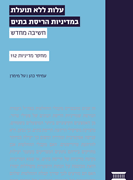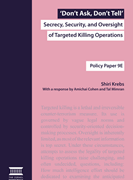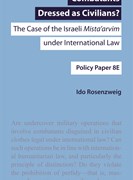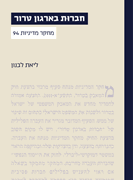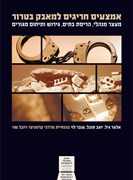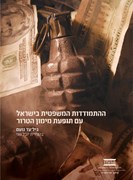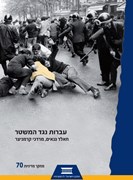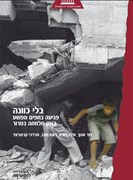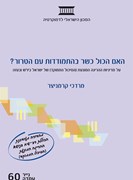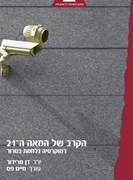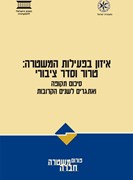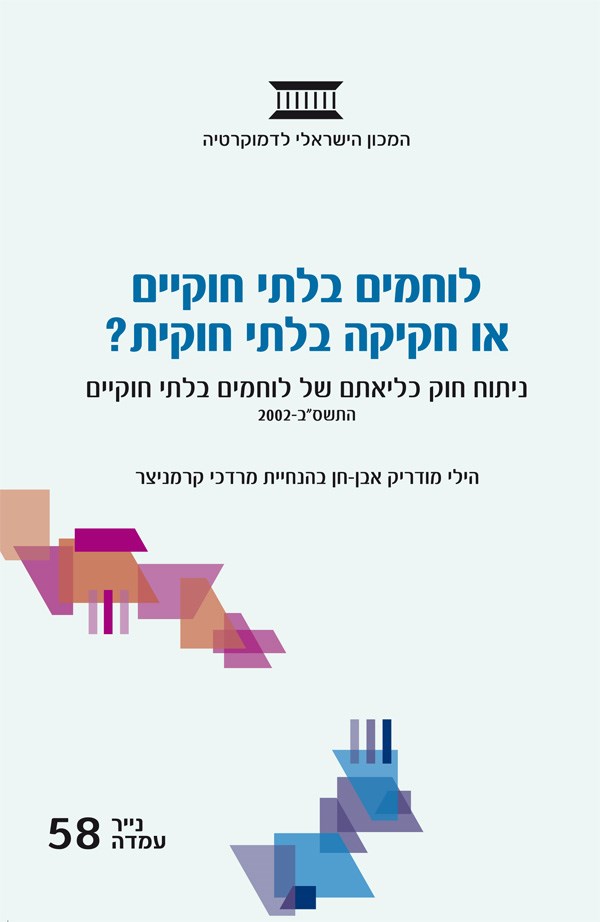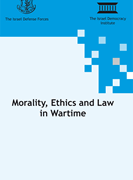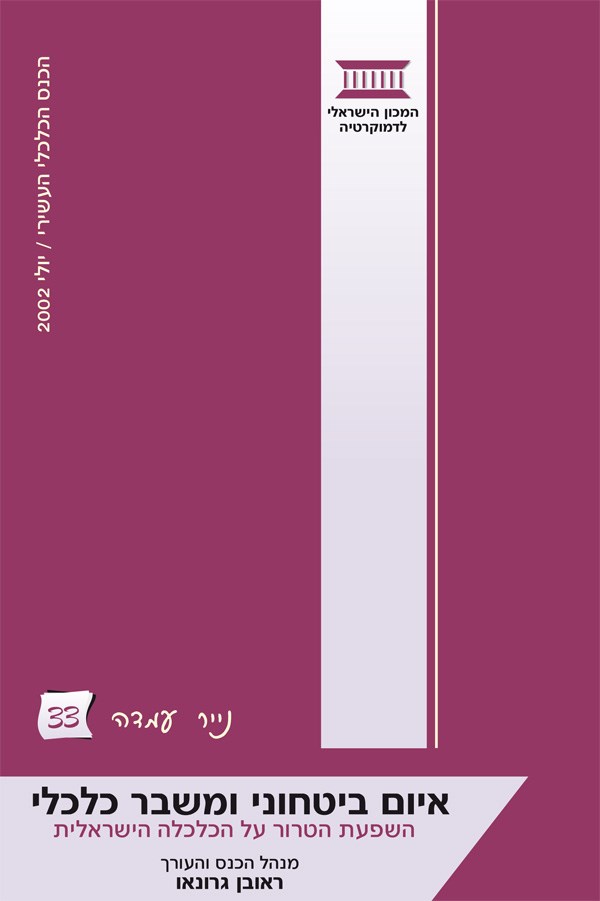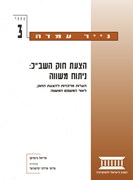

Publications Regarding terrorism and democracy
Articles

What is Missing from the Court's Decision on the MAG Leak Investigation
Written By: Prof. Suzie Navot
The High Court handed down a decision allowing the Minister of Justice choose the civil servant to oversee the investigation into the Sde Teiman video leak affair in the Attorney General's stead. This sets a concerning precedent and ignores the current political reality in Israel.

Israelis United in Confronting Iran - What's at Stake Next?
Written By: Yohanan Plesner

“Well, it Depends”: The Explosive Pagers Attack Revisited
Written By: Prof. Yuval Shany, Prof. Amichai Cohen
IDI experts Prof. Amichai Cohen and Prof. Yuval Shany analyze the legality of the September explosions targeting Hezbollah pagers and walkie-talkies through three legal frameworks: the right to use force, principles of distinction and proportionality, and the legality of employing these devices under laws regulating choice of weapons.

Advisory Opinion of the International Court of Justice on the Legal Consequences of Israel's Policies and Practices in the "Occupied Palestinian Territory"
Written By: Dr. Eran Shamir-Borer, Adv. Mirit Lavi
An in-depth analysis of the advisory opinion of the ICJ on the legal consequences of Israel's policies and practices in the 'occupied Palestinian territory.'

Investigating Allegations of Detainee Abuse is Israel’s Moral and Legal Duty - And a Diplomatic Necessity
Written By: Prof. Amichai Cohen, Dr. Eran Shamir-Borer
Investigating allegations of abuse at the Sde Teiman detention facility is Israel's moral and legal duty as a rule-based democracy and protects the country on the international legal and diplomatic front.

Improving Israel's Security and Resilience
Written By: Prof. Amichai Cohen
After three contentious election campaigns Israel's new government has been sworn in. IDI's experts weigh-in with their recommendations on the most important issues on the agenda. Prof. Amichai Cohen writes about the matters that should be at the top of the agenda to improve Israel's security and resilience.
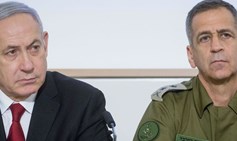
Who is Authorized to Decide on Military Actions that May Spark a Wider Conflict?
Written By: Colonel (Res.) Dr. Liron A. Libman
There is a vagueness about the authority to make fateful decisions for the country, including what even counts as war.
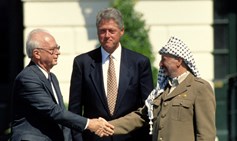
Two States for Two People? A Long Decline in Support
Written By: Dr. William Cubbison
For the past few decades, support and opposition to a two state solution has been a fault line dividing people and parties in Israel. Dr. William Cubbison presents an overview of the level of Jewish support in the 25 years since the signing of the Oslo Accords.
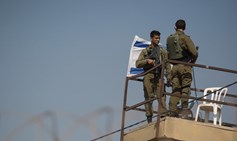
‘Black Friday’ and Other Investigations: Initial Observations
Written By: Prof. Amichai Cohen, Prof. Yuval Shany
Initial observations on Israeli's Military Advocate General's decision to conclude investigation into 'Black Friday'.
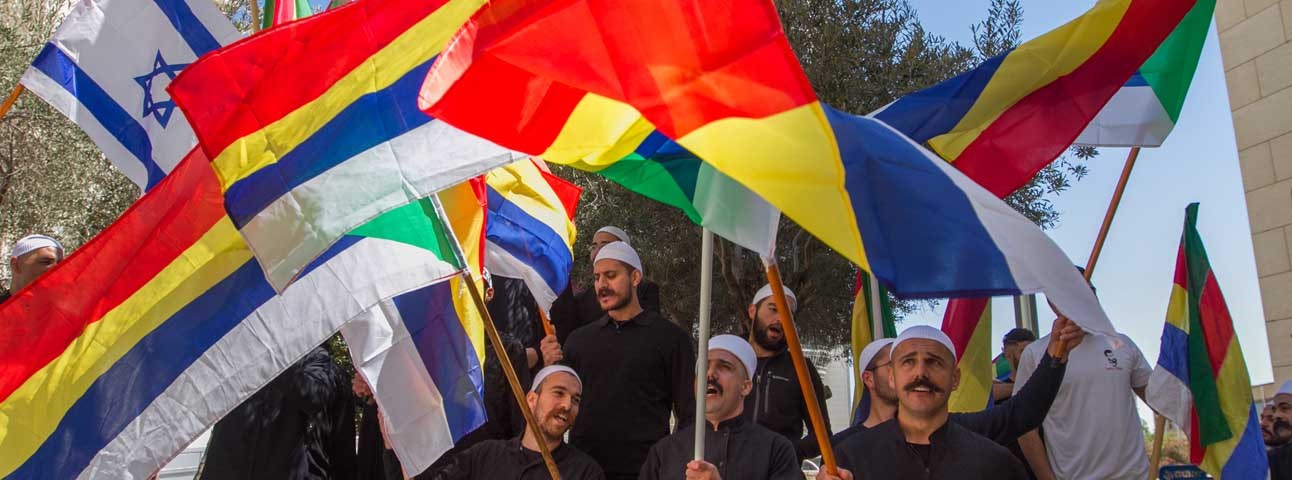
60% of Israelis Think the New Nation-State Law Should Have Included ‘Equality'
Written By: Prof. Tamar Hermann, Prof. Ephraim Yaar
The monthly Peace Index of the Israel Democracy Institute and Tel Aviv University, published today, finds that: only 52% of Jewish Israelis think it was important to pass the Nation-State law at this time.

Can an Ex-Senior IDF Lawyer Transform Administrative Detention?
Written By: Colonel (Res.) Dr. Liron A. Libman
"Even a bit more justice than now is better" said Liron Libman in an interview on administrative detention.

The Facebook Bill Must Be Amended so that it Can Serve Its Original Purpose
Written By: Dr. Tehilla Shwartz Altshuler
The Israel Democracy Institute applauds Prime Minister Netanyahu’s decision to reevaluate the Facebook Law which was initially formulated to help fight terrorism, but evolved into a draconian law that could set back the Start-Up Nation decades in terms of freedom of speech.
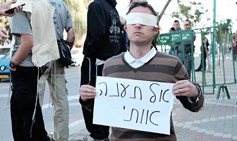
‘Special Interrogations,’ Confessions and the Duma Arson Attack
Written By: Prof. Yuval Shany, Prof. Mordechai Kremnitzer
The Lod district court decision illustrates the possible dangers to criminal defendant’s human rights though the expanding defense of necessity and the lack of separation between the preventive and criminal phases of the investigation.
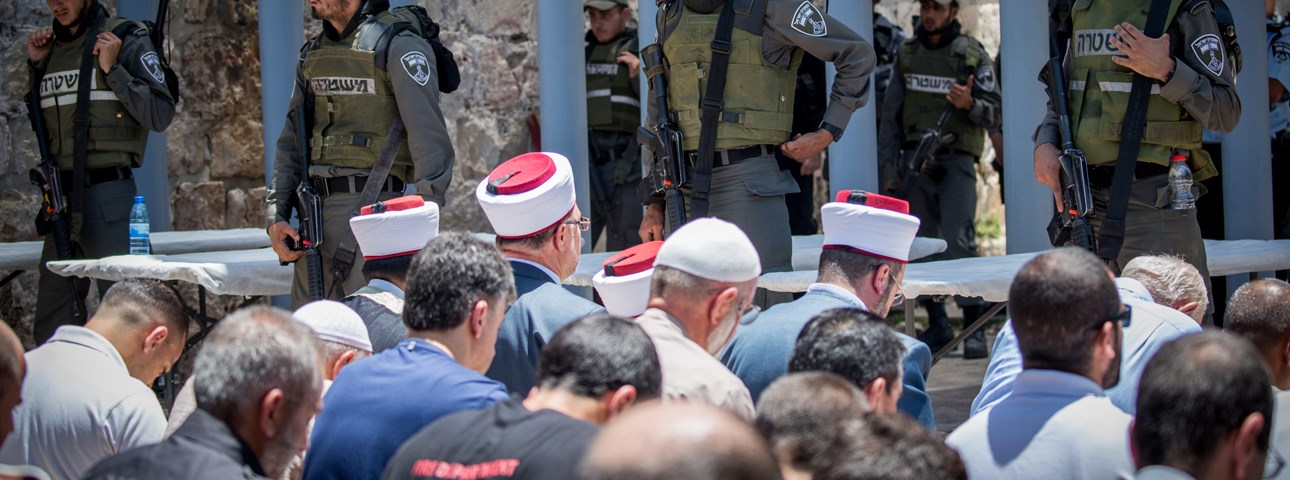
Survey: 56% of Jews Think Most Arab Citizens Support Temple Mount Attack
Monthly Peace Index also finds that 65% of Israelis do not trust Prime Minister Benjamin Netanyahu's handling of the crisis on Temple Mount.
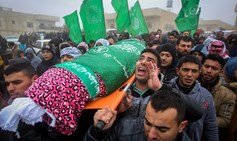
Terrorism in the Digital Age
Written By: Terrance J. Mintner
How does Israel confront terrorist threats in an era of online incitement and lone-wolf attacks?
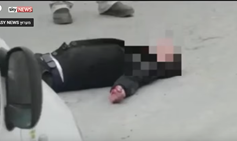
The Most Dangerous Terrorist in Israel is Someone You’ve Never Heard Of
Written By: Prof. Yedidia Z. Stern
It is almost certain that readers of this article will not recognize the name of this man, the terrorist who caused more damage to Israel’s security than any other attacker in recent years. His name is Abdel Fattah al-Sharif, 21, from Hebron.
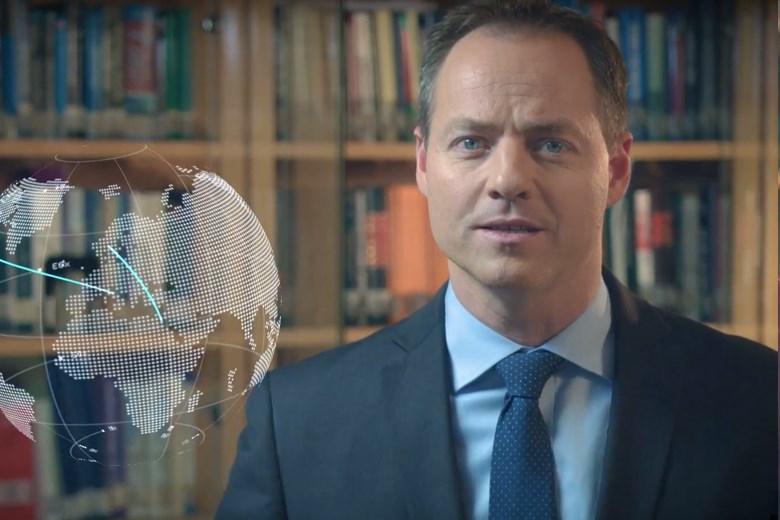
Ensuring a Vibrant Democracy
Written By: Yohanan Plesner
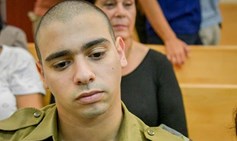
The Hebron Shooter is not Israel’s Poster Child
Written By: Idit Shafran, Gittleman, Admiral (Res.) Amichay (Ami) Ayalon
In this op-ed IDI's Amichay Ayalon and Idit Shafran-Gittleman argue that the challenge of combatting terrorism requires security concerns to be weighed against the values of a free society. The prevailing attitude among supporters of Hebron shooter Elor Azaria of allowing the security mantra to trump any other concerns may lead to short-term military success, but will be a moral loss for Israel, both on the home front and in the international sphere. This op-ed originally appeared in Haaretz.

Israel’s Amazing Restraint
Written By: Yohanan Plesner
Liberal democracy is in crisis everywhere. We in Israel have our share of problems. Our democracy is far from perfect, and it is under massive pressures — both external and internal. But all in all, if we look at the world around us, Israel is doing rather well. This article was originally published by the Atlanta Jewish Times.

The Moral Imperative
Written By: Prof. Yedidia Z. Stern
In an op-ed first published by The Jerusalem Report, Prof. Yedidia Stern says this intifada of knives has left Israel in a twilight zone. It is not a time of war, in which the army is permitted to use arms more freely. But nor is it a time of peace in which any use of arms is seen as most irregular. Sharp differences of opinion between the public and the army could lead to a crisis in public confidence in the military high command. There is a crying need for responsible leadership.
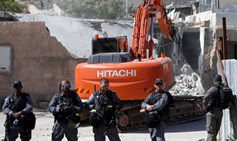
Time for Home Demolitions to be Tested by the Supreme Court
Written By: Adv. Tal Mimran, Nadiv Mordechay
Are home demolitions legal? And are they effective? Both IDF commanders and Israeli Supreme Court judges have raised doubts on the matter. In an op-ed published by The Jerusalem Post, IDI's Tal Mimran says the time has come to reevaluate Israeli policy.

66% of Jewish Public: 'It Is a Commandment to Kill a Terrorist Who Comes At You with a Knife'
Latest Peace Index shows Jewish Israelis agree Europe lacks the ability to combat terror, but favor collaborating with Turkey to fight terrorism. Plus, Israeli Jews now see Democratic frontrunner Clinton as better for Israel than Republican Trump.

IDI Scholars on the Terrorist Death Penalty Bill:
Ahead Sunday's vote in the Ministerial Committee on Legislation on whether or not the death penalty should be used against terrorists, two IDI scholars are calling on ministers to oppose the legislation.

Terror triage – Who comes first?
Written By: Dr. Idit Shafran Gittleman
In the aftermath of the Tel-Aviv terror attack, it is becoming increasingly clear that the current round of terror will not end soon. When there are casualties of attacks, not only do security issues arise, but so do medical issues – and these can be equally as complicated. This article originally appeared in Crescent City Jewish News.
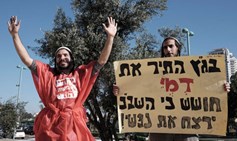
Torture Laws Must Apply To Arab And Jew Alike
Written By: Prof. Mordechai Kremnitzer
Dr. Mordechai Kremnitzer argues that it is time for Israel to examine the Shin Bet security service's regulations, based on the assumption that they apply to all residents of Israel. One law must apply to all suspected perpetrators of terrorist acts — Jews and Arabs alike.

High Court Seems to Think That Only Arabs Need Deterrence
Written By: Dr. Amir Fuchs
The Israeli High Court's claim that home demolitions need not be applied to Jews because they support terror less than Palestinians must be rejected. (This article was originally published by Haaretz.)
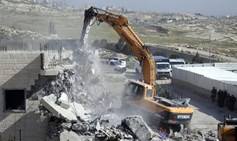
Are House Demolitions an Effective Tool in the Battle Against Terrorism?
Written By: Adv. Tal Mimran
Is demolishing terrorists' homes an effective deterrent? Israel Democracy Institute research – based on previous work conducted by the security establishment – has cast a doubt on its value. There was also a research report published in 2005 by a professional committee led by Maj. Gen. (Ret.) Udi Shani, which led to the cessation of house demolitions for three years.
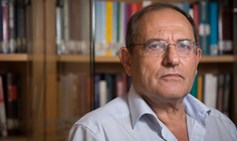
Thou shalt not kill?
Written By: Prof. Mordechai Kremnitzer
A society that is doomed to live forever by the sword cannot hope to be truly humanist and democratic. Originally published in the Jerusalem Report.

The Media and the Terrorism of Knives
Written By: Dr. Tehilla Shwartz Altshuler
Tehilla Shwartz Altshuler reminds us that the media is the cement that holds the stones of democracy together. As the arbiter of reality, the purpose of the media is to show us, the citizens, what is going on around us. To the same extent, it is also supposed to reflect our feelings and our level of trust in the decision-makers and representatives whom we elect to govern us.
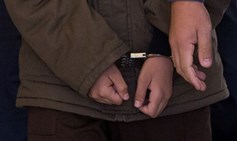
It’s Time to Stop the Use of Administrative Detention in Israel
Written By: Dr. Amir Fuchs
Is administrative detention an appropriate response to Jewish terror such as the events in Duma? Dr. Amir Fuchs argues that there is no justification for administrative violations of a person’s freedom except for in concrete emergencies in which criminal law would be impossible to apply.

Prof. Amichai Cohen Warns about International Intervention in Israeli Investigation of Operation Protective Edge
Upon the release of the findings of the international investigation of Operation Protective Edge: IDI warns that the intervention by international bodies in the investigation of the events of the Operation in Gaza undermines the basis of the international demand to establish investigative mechanisms and weakens the Israeli legal system.
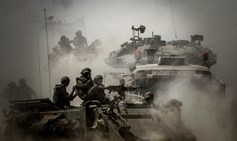
IDI Submission to the UN's International Commission of Inquiry on the 2014 Gaza Conflict
Written By: Prof. Amichai Cohen
Submitted to the UN International Commission of Inquiry on February 11, 2015, this document details the role of lawyers within the Israeli Defense Forces in implementing and enforcing International Humanitarian Law within the IDF.
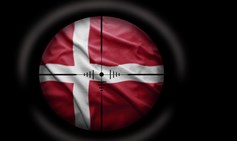
New Partners in the Struggle Against Terrorism
Written By: Prof. Yedidia Z. Stern
Yohanan Plesner argues that as Denmark grieves for a terror attack on its soil, Israeli leaders must broadcast "a message of partnership among democracies battling terrorism without sacrificing their democratic values."
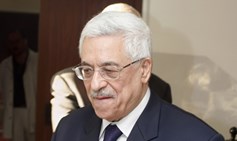
The Palestinian Authority and the International Criminal Court
Written By: Prof. Amichai Cohen, Adv. Tal Mimran
A discussion of the Palestinian Authority's declarations to the International Criminal Court (ICC), the changes that influenced the ICC prosecutor's decision to accept the PA's second declaration, and the conditions that must be fulfilled in order for the ICC to apply its jurisdiction to IDF actions or to the settlement enterprise.
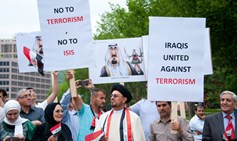
The (Legal) Battle against the Islamic State
Written By: Prof. Amichai Cohen, Adv. Tal Mimran, Prof. Yuval Shany
Three IDI experts on terrorism and democracy discuss the key points of the UN Security Council resolution that condemns the abuse of human rights by the Islamic State, and note two points that they believe are missing from the resolution.
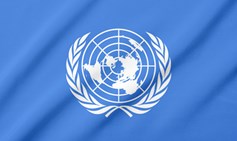
A Betrayal of International Law
Written By: Prof. Mordechai Kremnitzer
In a Jerusalem Post op-ed, Prof. Mordechai Kremnitzer argues that by breaching their responsibility to be impartial, the UN Human Rights Council and its commission for investigating alleged war crimes in Gaza are betraying international law, even if unintentionally.
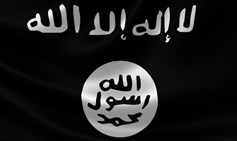
ISIS: Is the Islamic State Really a State?
Written By: Prof. Yuval Shany, Prof. Amichai Cohen, Adv. Tal Mimran
What criteria must the caliphate of the Islamic State meet in order to be considered a State under international law? This article presents an analysis of this question by IDI experts on terrorism and democracy.

Mourning for Gazan Children Isn't Left-Wing
Written By: Prof. Mordechai Kremnitzer
IDI Vice President Prof. Mordechai Kremnitzer discusses the High Court of Justice's decision to uphold the Israel Broadcasting Authority's rejection of an infomercial in which the names of Gazan children who were killed in Operation Protective Edge would have been read aloud.
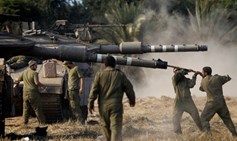
Investigating Allegations of Violations of the Laws of War by the IDF during Operation Protective Edge: The Alternatives Available to Israel
Written By: Prof. Yuval Shany, Prof. Amichai Cohen
How should suspected violations of the international laws of war be investigated? As Operation Protective Edge winds down, Prof. Yuval Shany and Prof. Amichai Cohen discuss the options of an internal investigation by the IDF, an international investigation, and an Israeli commission of inquiry.

Investigating Allegations of Violations of the Laws of War by the IDF during Operation Protective Edge: The Alternatives Available to Israel
Written By: Prof. Yuval Shany, Prof. Amichai Cohen
How should suspected violations of the international laws of war be investigated? As Operation Protective Edge winds down, Prof. Yuval Shany and Prof. Amichai Cohen discuss the options of an internal investigation by the IDF, an international investigation, and an Israeli commission of inquiry.
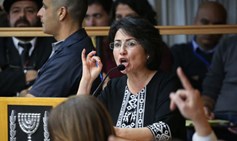
Heart vs. Head: The Case of Hanin Zoabi
Written By: Prof. Mordechai Kremnitzer, Admiral (Res.) Amichay (Ami) Ayalon
Prof. Mordechai Kremnitzer and Admiral Ami Ayalon argue that while the heart has difficulty defending MK Hanin Zoabi's freedom of expression, the head demands that we object to the decision to remove her from parliamentary activity for six months.

Why Israel Should Fight with One Hand Tied Behind Its Back
Written By: Yohanan Plesner
In an op-ed in <em>The Jerusalem Post</em>, IDI President Yohanan Plesner stresses that Israel's adherence to international law is not a source of weakness, but rather one of its greatest strengths.
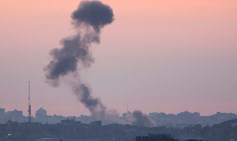
On Operation Protective Edge, Justice, Law, and Victory
Written By: Admiral (Res.) Amichay (Ami) Ayalon
Admiral Ami Ayalon asserts that the winner of today's wars is the side whose story is perceived as just, and argues that without a diplomatic track, Israel cannot win the war, even if the war is justified and Israel adheres to international law in the face of terrorists who violate it.

Operation Protective Edge and International Law
Written By: Yohanan Plesner , Prof. Mordechai Kremnitzer, Prof. Amichai Cohen, Adv. Eli Bahar
As Operation Protective Edge enters its second week, IDI experts outline the legal basic concepts involved in asymmetrical warfare and the boundaries of permissible action according to standard interpretations of existing international law.

The Role of a Legal Advisor during Times of Combat
Written By: Adv. Eli Bahar
IDI Researcher Attorney Eli Bahar discusses the central role that members of Israel's system of legal counsel play in formulating the rules of what is permissible during warfare in real time, during the fighting, in order to ensure that Israel's citizens will not be ashamed of themselves after the fighting ceases.
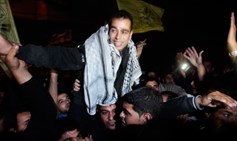
Releasing Terrorists: An Insult to the Criminal Justice System
Written By: Dr. Amir Fuchs
In an article in <em>Haaretz</em>, attorney Amir Fuchs explains why he believes the release of convicted terrorists as part of prisoner release deals or as part of diplomatic negotiations degrades Israel's criminal justice system.
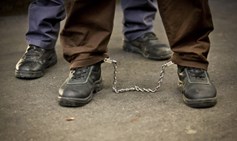
Organized Criminals Today, Everyone Else Tomorrow
Written By: Lina Saba
In an op-ed in Haaretz, Attorney Lina Saba-Habesch warns that extending the use of administrative detention to apply to suspects in cases of organized crime could lead to the use of this extreme method, or of other extreme methods, in combating other forms of crime.

Using Administrative Detention to Combat Organized Crime
Written By: Aviad Ben Yehuda
Aviad Ben Yehuda discusses the problematic nature of the proposal to extend the use of administrative detention in Israel from the war on terror to the war on organized crime.

Prof. Mordechai Kremnitzer Speaks Out on Using Administrative Detention in Cases of Organized Crime
Written By: Prof. Mordechai Kremnitzer
IDI Vice President of Research Prof. Mordechai Kremnitzer responds to the possibility that the police will use administrative detention to combat organized crime, much in the manner as it is used to combat terrorism.

Half-Measures in the War on Terror: An Israeli Perspective
Written By: Prof. Mordechai Kremnitzer, Prof. Yuval Shany
In an op-ed in The Jerusalem Post, Prof. Mordechai Kremnitzer and Prof. Yuval Shany discuss the need for measures, laws, and institutions designed to combat the war on terror in order to strike a balance between concern for national security and the need to safeguard democratic values such as human rights and the rule of law.
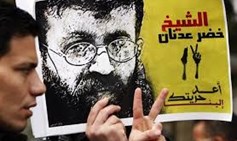
Is Administrative Detention the Right Tool for Fighting Terrorism?
Written By: Elad Gil
On February 21, 2012, just before the High Court of Justice was to hear his petition, Palestinian detainee Khader Adnan agreed to end his life threatening hunger strike after Israeli authorities agreed to release him in April, at the end of four months of administrative detention. Attorney Elad Gil explores basic questions about the use of administrative detention in Israel and highlights lessons learned from the Adnan affair.

Crossing the Syrian-Israeli Border: Acts of War or Disturbances?
Written By: Prof. Yuval Shany
The violent incidents that took place on the Israeli-Syrian border in June 2011 raise the question of how the Israel Defense Forces should deal with violent events that resemble disturbances while at the same time affecting important Israeli security interests. IDI Senior Fellow Prof. Yuval Shany offers his analysis of the Israeli response to these events.

The Counter-Terrorism Memorandum Bill
Written By: Prof. Mordechai Kremnitzer, Prof. Yuval Shany, Terror and Democracy Research Team
An analysis of the proposed comprehensive counter-terrorism bill that was prepared by IDI's Terrorism and Democracy research team and submitted to the Ministry of Justice.

Decade in Review: The Convergence of Israeli and International Law
Written By: Prof. Yuval Shany
IDI Senior Fellow Professor Yuval Shany explains the increasingly critical relationship between international law and the Israeli legal system, in an article that was published at the end of the third millennium as part of a collaboration between IDI and Walla!, a popular Israeli website.

Cyber-Terrorism
Written By: Karin Tamar Schafferman
An abridged version of a Hebrew article on cyber-terrorism that was originally published in IDI's Hebrew Parliament on-line journal.

Terrorism: Dangerous and Vague
Written By: Dr. Dana Blander
An article that introduces the debate about the definition of "terrorism," analyzes its scope, frequency, and ramifications, and concludes with two ways to understand terrorism as a significant threat to democracy.

Anti-Terrorism Legislation in Britain and the U.S. after 9/11
Written By: Yogev Tuval
Democratic countries around the world are struggling to effectively fight terror without compromising basic human rights and freedoms – the essential democratic values. In this article from IDI's Hebrew online journal Parliament, IDI's Yogev Tuval presents an analysis and comparison of post-9/11 anti-terrorism legislation in the United States and Britain, and explains how certain laws threaten democracy.

Summing Up the Knesset's Summer Session
Written By: Prof. Mordechai Kremnitzer
Prof. Mordechai Kremnitzer reflects on the productivity of the Knesset during the summer of 2008, suggesting that most of its members' energy was invested in dangerous, anti-democratic, disproportionate, offensive, and sometimes almost racist, legislation.

How Israel’s Leadership Betrayed Democracy
Written By: Prof. Amichai Cohen, Dr. Idit Shafran Gittleman
Despite the verdict, the real story in the Azaria affair is the moral, not the legal, issue, and this debate is alive and well.
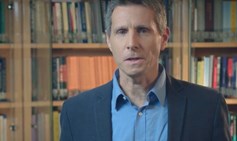
Security and Democracy in the Modern Era
Written By: Prof. Yuval Shany
Israel has been in a state of emergency since 1948. But the nature of the threat has changed over-time—from full-scale military invasions to isolated airplane hijackings, from suicide bombings to missile attacks, and most recently, cyber and lone wolf terrorism.
These ever-evolving threats necessitate new responses and strategies.



